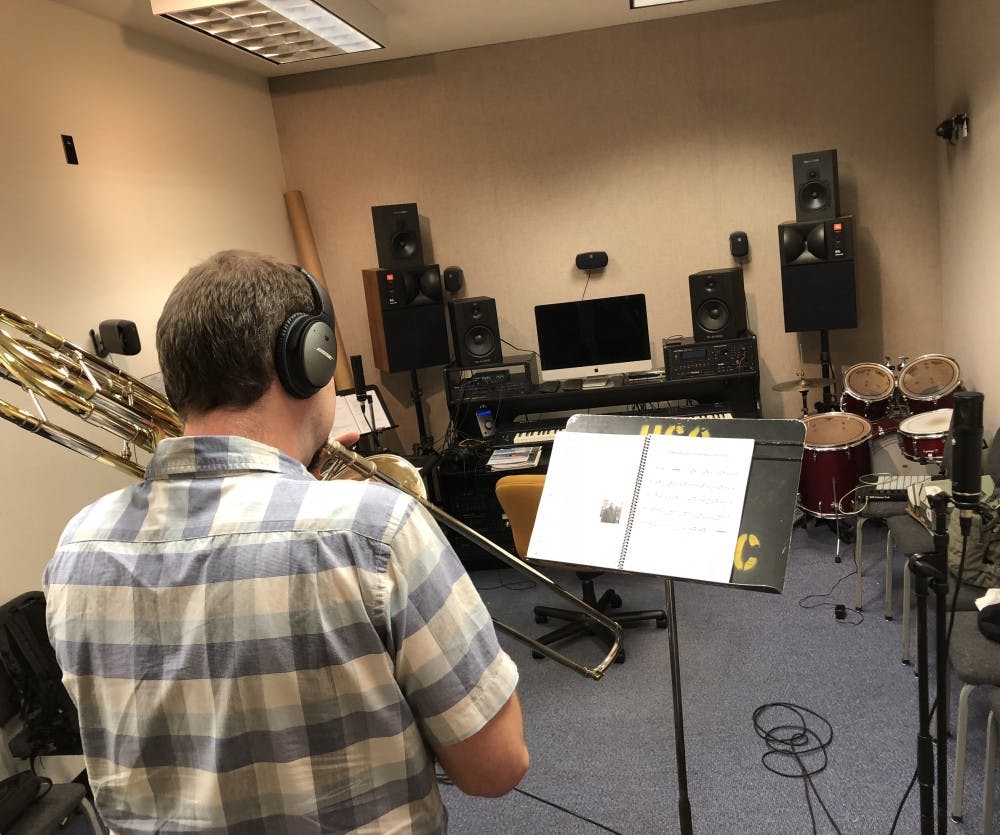With a few featured composers, a computer and an Ableton Push, the USC School of Music is hoping to have an electrifying concert Tuesday night.
USC’s experimental music studio, xMUSE, is holding a concert characterized by sounds that differ from what one thinks of as traditional music: The student composers will use the computer as a primary instrument.
“The one thing with us that makes things slightly different is the computer is integrally involved in transforming the music, either in real time or during the compositional process,” Reginald Bain, director of the Experimental Music Studio said. "That's a really interesting relationship between human being and machine."
During the concert, composers will immerse the audience in their various pieces, ranging from familiar topics to ideas literally out of this world, like a flight through a radiation belt. Masters of music composition student Jacob Wylie personally drew inspiration for his piece from his experience in making Columbia a new home.
“It’s almost like an orchestra of different kinds of animals, mainly birds,” Wylie said of his piece. "[It gives] a spatial representation of what you might hear when you go to Congaree.”
Wylie focused on Congaree specifically because finding the nature available here was an important part of his transition from Greenville.
“I always loved traveling up to the mountains and just kind of being being close to nature. So when I moved to Columbia I was a little bit disappointed because I felt like all it had to offer was just buildings and roads,” Wylie said. “But when I did a little bit of exploring I found the Congaree National Park ... I was able to find the same kind of tranquil atmosphere.”
Second-year music student Thomas Palmer also described his inspiration for the piece 'Looking Back' as a sort of nostalgia from his time in high school and his transition to USC.
“The main melodic motive of the piece that I’m using is the same melodic motive from a piece I wrote in high school,” Palmer said. “I auditioned here with that piece ... and so that’s why it’s called ‘Looking Back.’”
The students involved in the concert are in the classes MUSC 540 and MUSC 737. Students, Bain said, are selected based on completion and quality of pieces. Bain spoke highly of the students' work, as well as his overall impressions with the semester, but the process of writing the music is still extensive and complex.
“It all starts with planning. I think a lot of us have a romantic vision of artists in general,” doctorate student Ryan Williams said. “There’s a lot of planning and structure and thinking that goes into it. This isn’t the piece I started with. This is the third or fourth version.”
The USC Computer Music Concert has been going on since 1994 under Bain’s direction. With an increase in technology, Bain said he’s seen the program advance towards more “live interactive pieces.”
“Composer, performer — it’s a really interesting cycle,” Bain said. “I try and teach my students to kind of paint with sound.”
The program’s title comes from composer Katie Miller’s piece "Crossing," which will be featured at Tuesday’s performance. Yet Bain explains that the theme crossing means more to him.
“It really sent a message to me about what each composer is doing, in that, for me, each composer is kind of involved in their own 'crossing,'” Bain said. “It’s this journey, you’re not exactly sure where you’re going to end up. And that’s the way art is.”
In his position as director, Bain serves as a mentor to the composers as they write their pieces and as they go through their musical crossing.
“They get out of the way and let you take off on the journey on your own,” Williams said. “Dr. Bain is ... a guide and a mentor along the way.”
Though most of the performers are now experienced in this style of music, Palmer said that Dr. Bain's wealth of knowledge has been helpful in this whole process, starting with his very introduction to computer-based music.
"He knows so much about what he does," Palmer said. "He kind of had to teach all of us from the ground up how to even start this kind of thing — how to use all the equipment, how to mix and master the music."
The performance, held in the USC School of Music at 7:30 p.m. on Tuesday, may have taken a lot of work, but ultimately came together smoothly.
“This is one of the easiest concerts I’ve ever had to put together,” Bain said. “Everyone's just doing great work and it comes together kind of magically.”

